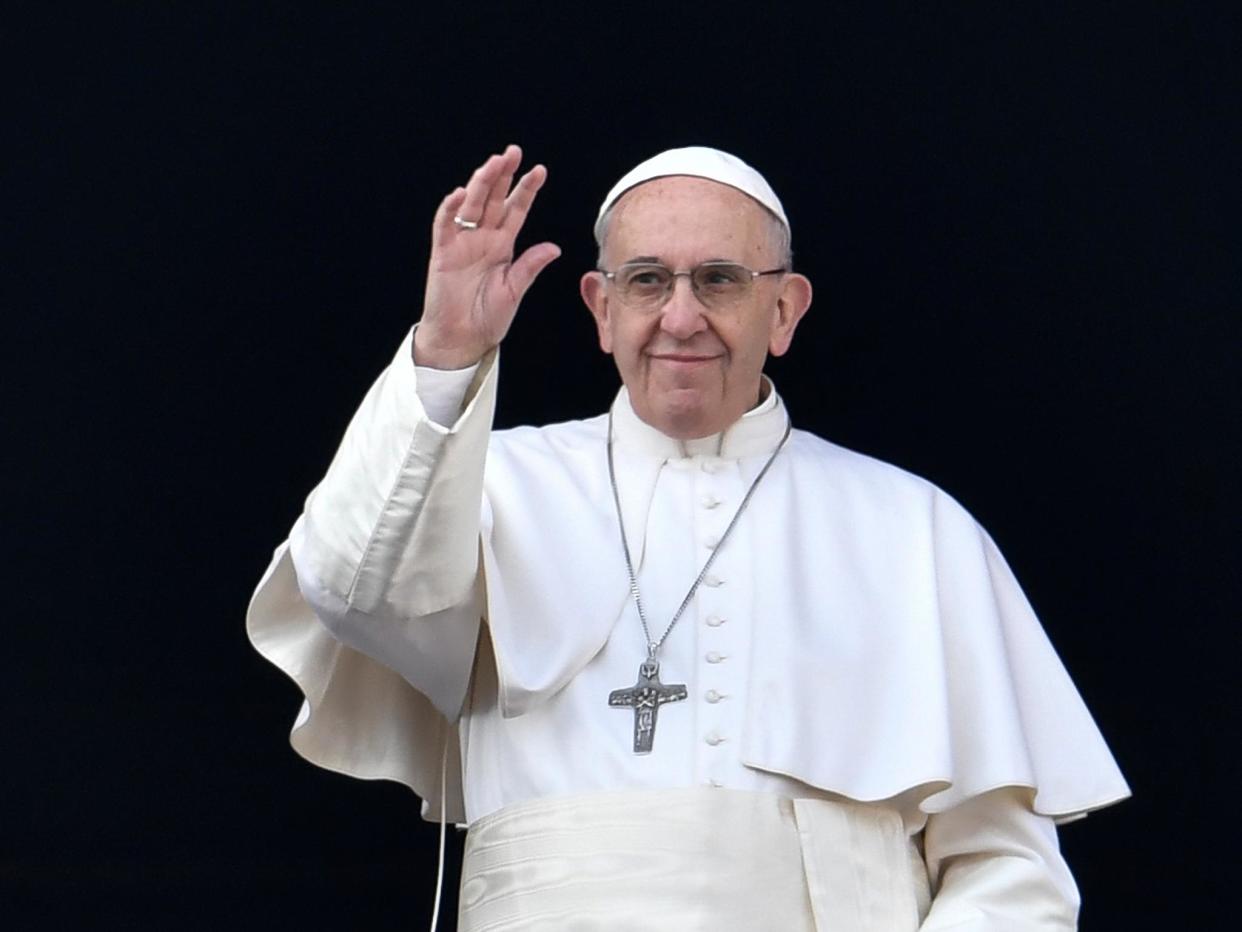Pope Francis calls on politicians to do more to help refugees and migrants

Pope Francis has called on world leaders to do more to help refugees and migrants, in an attempt to put pressure on politicians to improve what he called the “lamentable” situation facing people fleeing conflict.
His intervention came as the Vatican published a detailed policy document outlining how states should approach the refugee crisis. It calls for migrants and refugees to be given more support at every stage of their journey, including in the countries they eventually arrive in, and proposes creating humanitarian corridors for people trying to escape war.
States must also do more to help refugees into work and education, Pope Francis said, as he called on wealthier nations to support developing countries that are bearing the brunt of the refugee crisis.
The UN estimates that 56 per cent of the world’s displaced people are in Africa and the Middle East – often in countries that lack the infrastructure and resources to cope with a growing population. Only 17 per cent of migrants and refugees are currently in Europe.
The report was published by the Vatican’s migrants and refugees department, which reports directly to the Pope. Officials say the issue is at the heart of his agenda, along with tackling climate change.
He previously condemned what he called the “globalisation of indifference” after visiting a migrant camp in Italy and later said the way in which states deal with the refugee crisis would be “a test of our humanity”.
In a message released to coincide with the publication of the Vatican report, Pope Francis said “motherly love” must be shown to “every person forced to leave their homeland in search of a better future”.
“This solidarity must be concretely expressed at every stage of the migratory experience – from departure through journey to arrival and return,” he said.
“This is a great responsibility, which the Church intends to share with all believers and men and women of good will, who are called to respond to the many challenges of contemporary migration with generosity, promptness, wisdom and foresight, each according to their own abilities.”
Countries’ approach to migrants should be summarised as “to welcome, to protect, to promote and to integrate,” he added.
The Pope’s intervention comes a year before world leaders will meet at the United Nations in New York to try to agree new measures to help refugees and migrants. There remain major disagreements between states on what should be done, with many Mediterranean countries calling for tougher action to stem the flow of migrants reaching their shores while other European countries demand a more welcoming approach to refugees.
Laying out an action plan on migration that he urged states to support, Pope Francis called for migrants and refugees to be allowed to enter destination countries “safely and legally”.
He said states must take in more refugees and do more to reunify families who have been split up. Temporary visas should be granted to people fleeing conflict in neighbouring countries, he added.
Criticising the use of detention camps for immigrants waiting to have their applications processed, he emphasised “the importance of offering migrants and refugees adequate and dignified initial accommodation”.
Pope Francis also urged states to “always prioritise personal safety over national security” and ensure migrants are given access to basic services.
Calling for migrants to be given the opportunity to work, he said: “When duly recognised and valued, the potential and skills of migrants, asylum seekers and refugees are a true resource for the communities that welcome them.”
Commenting on the Pope’s intervention, Graham Gordon, head of policy at Catholic aid agency Cafod, said: “The Holy Father is making clear that all countries must step up to the plate and pull their weight.
“This is one of the greatest crises of the century so far. Not for the first time, the Pope is reminding politicians that history will judge whether they rise to the challenge or abdicate their responsibilities.
“Displaced people must be given access to services, the right to earn an income through decent and safe work, and help to reunite families separated by war and catastrophe.”

 Yahoo News
Yahoo News 
